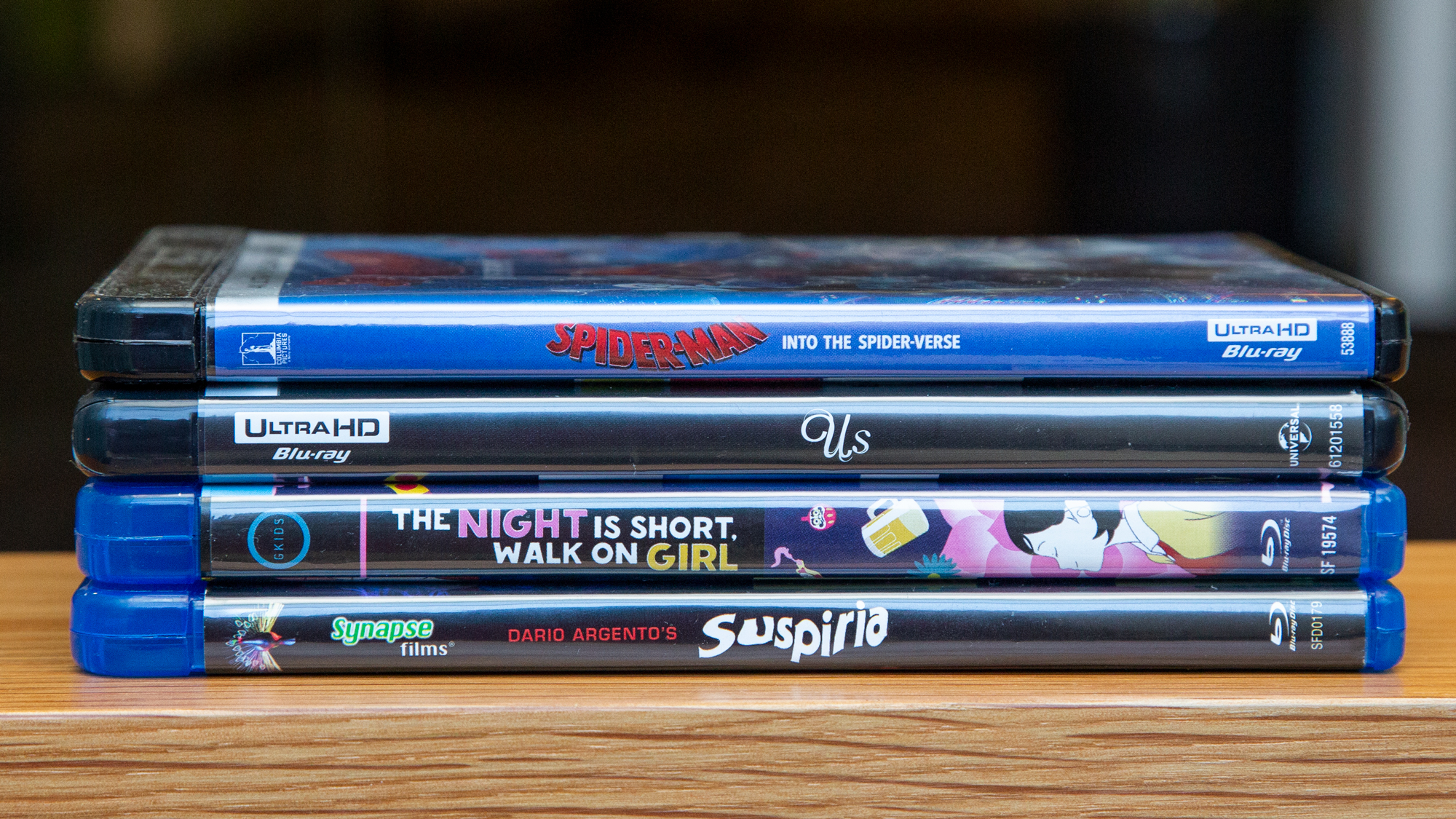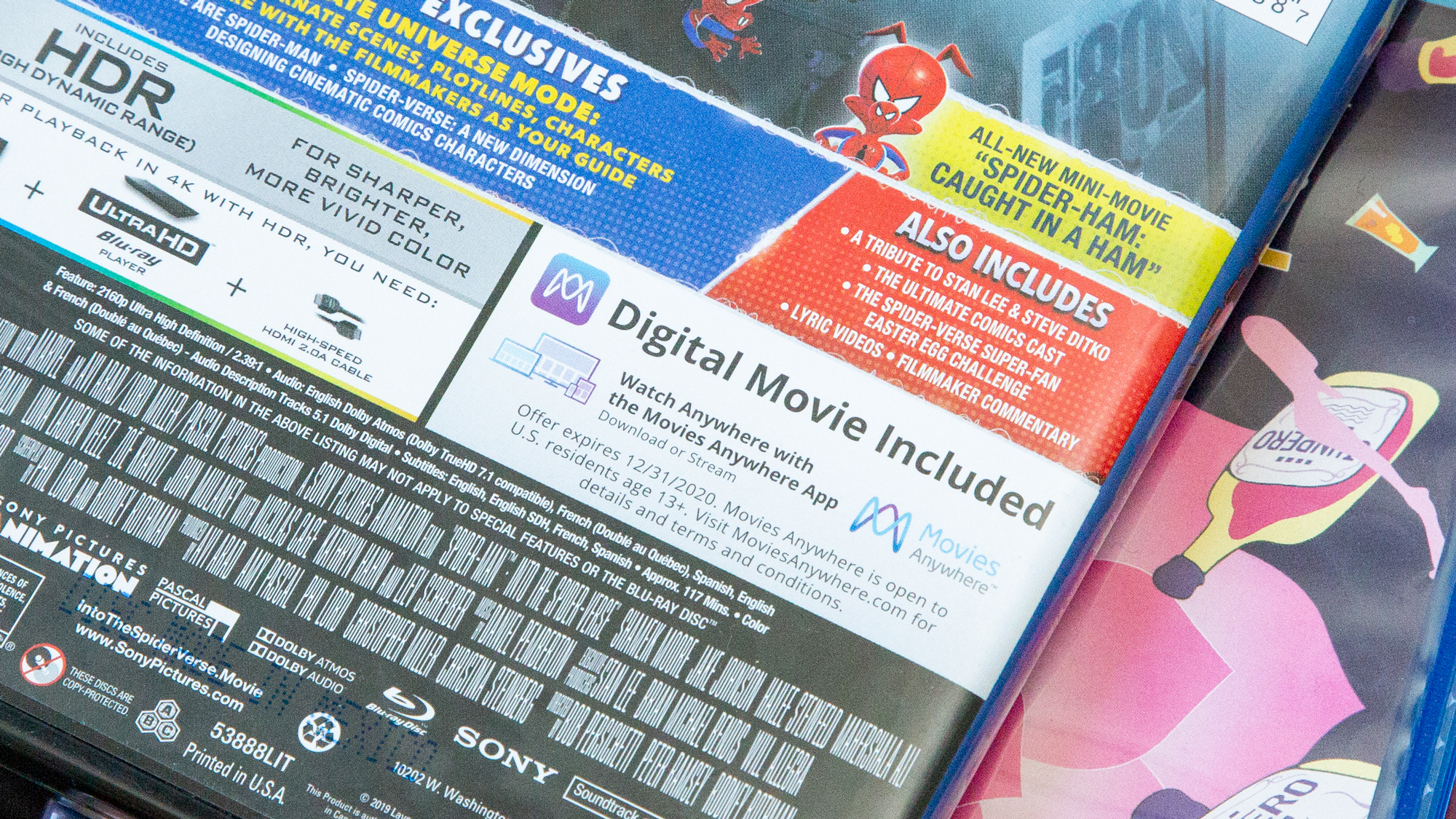Forget Streaming: Why You Should Still Buy Blu-Rays
Going analog is still the way to go

July 29 Update: Ultraviolet is closing, but you can hold onto your movies with a two-step process detailed below.
The other day — like it was 2009 and not 2019 — I sat down and slid an optical disc movie into my PlayStation, not even thinking about whether that movie was streaming online. Yes, in the era of Netflix and Hulu, I'm still buying physical media, and am completely loving it.
I know this might sound crazy, as I'm already paying $13 a month for Netflix and the UHD 4K Blu-ray of Jordan Peele's horror classic Us costs $28. But I've got a rationale, and it's focused on the future. Simply put, most theatrically released films don't last long on Netflix.
Movies come and go, unless you own them
In the last year or so, I've done a lot of Tom's Guide's coverage of what to watch on Netflix, and I've watched movies come and go, and come and go some more. It's often the same movie, actually, as Pan's Labyrinth seems to spend one month in Netflix and one month off of the service.

My decision-making on when to turn to Blu-ray starts when I leave the cinema with the thought "I need to own this movie, now," and realize that I'll need to wait for its release. This happened after I saw the marvelously animated Spider-Man: Into The Spider-Verse, and felt so strongly about the film that I needed to own it in perpetuity.
Spider-Verse looks so good that I knew I wouldn't want to rely on streaming, which can often take the detail out of films if you’ve got a bad connection. And even though this animated Spidey film is currently on Netflix, I'd rather invest in the movie once rather than pay an extra $3 per month for Netflix’s $15.99 4K streaming tier, as the service’s $12.99 standard package is pricey enough.
Movies Anywhere is a Blu-ray's best friend
Oh, and there's one more great reason why I'd recommend you buy Blu-rays: the Movies Anywhere digital copy that comes with most purchases. Don't confuse this service with Ultraviolet, which died earlier this year after limited support — Movies Anywhere ties into all the big players: iTunes, Amazon, Google Play and Vudu (which I recently discovered is owned by Walmart).
Ultraviolet finally shuts down in 2 days — on July 31 — so existing members should sign into their account here, and link their account to a new account at Vudu. Then, open your Movies Anywhere and link it to the Vudu account.

That means that any Movies Anywhere purchase can be watched on any device with any of those apps, or on the Movies Anywhere app. And the app is my favorite, because it's on the Roku, which is how I stream 4K movies, as I haven't bought one of the more-advanced game consoles.
I recommend that you buy a 4K ultra-high definition (UHD) version of a movie, even if you don't have the hardware to support it yet. The digital version you get from Movies Anywhere matches the resolution of the Blu-ray or DVD you purchase, so buying the 4K version helps future-proof your viewing.
My advice
And if that sounds like too much work for you, I guess you could just hope that certain movies are available to stream with your existing streaming site subscriptions, and buy or rent them if they're not. I'd just rather not depend on digital rights lapsing, which seems all the more likely when companies like NBCUniversal and WarnerMedia are building their own services and taking their content off of the existing platforms.
Sign up to get the BEST of Tom's Guide direct to your inbox.
Get instant access to breaking news, the hottest reviews, great deals and helpful tips.

Henry is a managing editor at Tom’s Guide covering streaming media, laptops and all things Apple, reviewing devices and services for the past seven years. Prior to joining Tom's Guide, he reviewed software and hardware for TechRadar Pro, and interviewed artists for Patek Philippe International Magazine. He's also covered the wild world of professional wrestling for Cageside Seats, interviewing athletes and other industry veterans.
